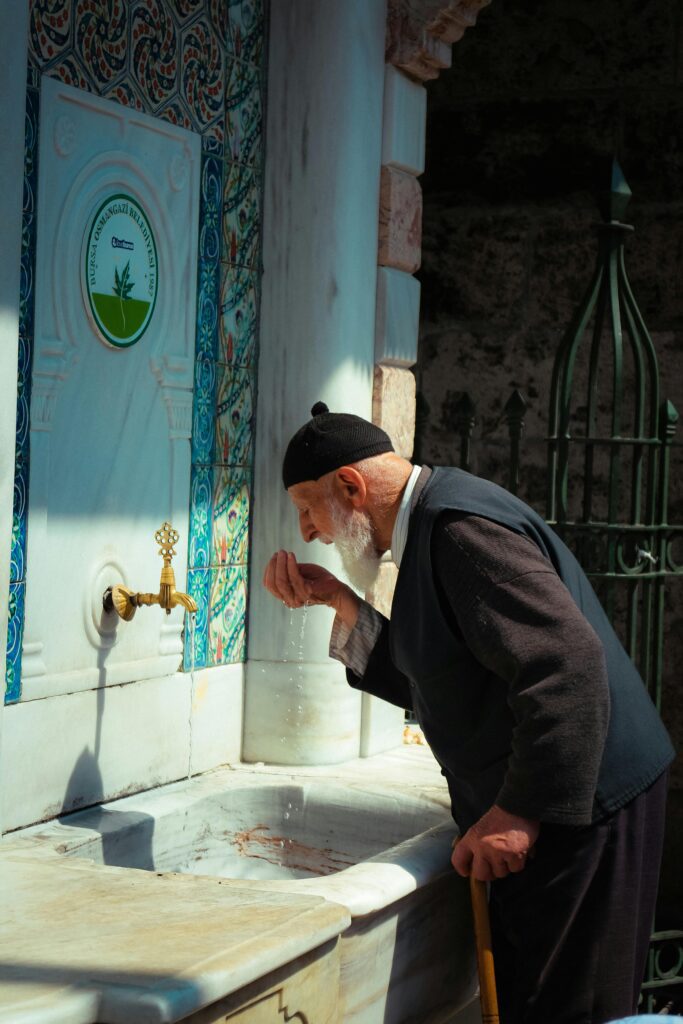🕌 Fasting Eligibility & Fidya Rules in Islam

📍 Understanding who must fast, exemptions, and how to compensate missed fasts in Ramadan.
📚 Table of Contents
1️⃣ What Are the Fasting Rules in Islam?
2️⃣ Who Must Fast During Ramadan?
3️⃣ Exemptions: Who Is Excused From Fasting?
4️⃣ What is Fidya and When Is It Required?
5️⃣ How Much Is Fidya for Missed Fasts?
6️⃣ Missed Fasts: Options Beyond Fidya
7️⃣ Fasting During Pregnancy or Illness
8️⃣ Ramadan Rules for Women
9️⃣ What Is Not Allowed During Ramadan Fasting?
🔟 Conclusion
❓ Frequently Asked Questions (FAQs)
1️⃣ What Are the Fasting Rules in Islam?
In Islam, fasting during Ramadan is one of the Five Pillars. From dawn (Fajr) to sunset (Maghrib), Muslims must abstain from eating, drinking, intimacy, and sinful behavior. The goal is spiritual purification, self-control, and devotion.
These Islam Ramadan fasting rules apply to every eligible adult Muslim.
2️⃣ Who Must Fast During Ramadan?
Fasting is obligatory upon Muslims who are:
Adults (post-puberty)
Physically and mentally healthy
Residing (not on a journey)
Not menstruating or postpartum (for women)
This is the default group expected to fast unless valid Ramadan fasting exceptions apply.
3️⃣ Exemptions: Who Is Excused From Fasting?
Islam offers compassion and flexibility. Those exempt include:
Elderly who cannot bear fasting
Chronically ill patients
Pregnant or breastfeeding women (if fasting harms them or the baby)
Travelers
Children
Menstruating or postpartum women
They may make up missed fasts later — or offer fidya if unable to fast permanently.
4️⃣ What is Fidya and When Is It Required?
Fidya for missed fast is a charitable compensation paid when someone cannot fast and is unable to make up the missed fasts later.
🧕 Example: An elderly woman with diabetes who can’t fast or make up for them — she pays fidya.
5️⃣ How Much Is Fidya for Missed Fasts?
As of today, fidya is typically equal to feeding one poor person two meals per day, for each day missed. It can be paid to charitable organizations or directly to a person in need.
For 30 days:
📌 30 days × 2 meals = 60 meals cost.
Check local Islamic organizations for updated rates.
👉 See our page on Zakat Eligibility & Calculation for related guidance.
6️⃣ Missed Fasts: Options Beyond Fidya
If someone recovers health later, they must make up the fasts (qadha) instead of fidya.
📌 Missed fast payment only applies when fasting is permanently impossible.
7️⃣ Fasting During Pregnancy or Illness
🤰 Pregnant women and those with temporary illnesses may postpone fasting and make up after Ramadan.
If recovery is not expected (chronic illness), fidya becomes applicable.
8️⃣ Ramadan Rules for Women
Women must:
Not fast during menstruation or post-natal bleeding
Make up those days later (not pay fidya)
Avoid intimacy during fasting hours
Maintain modesty and good behavior
9️⃣ What Is Not Allowed During Ramadan Fasting?
🚫 Invalidators of fasting:
Eating/drinking (intentionally)
Intimacy during fasting
Vomiting intentionally
Smoking
Using foul language or lying (spiritually harms the fast)
🔟 Conclusion
Islam’s fasting system balances discipline with mercy. If you cannot fast, Islam doesn’t burden you. It gives you an honorable alternative — fidya. Learning the proper fasting rules in Islam ensures your worship is valid, sincere, and accepted.
✅ Whether you’re a new Muslim or someone returning to faith, understanding your responsibility (or exemption) empowers you.
❓ Frequently Asked Questions (FAQs)
1. What is fidya in Islam?
Fidya is a charitable payment for missed fasts when one cannot fast permanently.
2. Who is eligible to pay fidya?
The chronically ill, elderly, or others unable to fast for life.
3. How much fidya per day?
Equivalent to feeding one poor person two meals per missed day.
4. Can I give fidya to my family?
Yes, if they are eligible to receive zakat.
5. Can pregnant women pay fidya instead of fasting?
Only if they cannot fast and are not expected to recover.
6. Is it better to make up fasts or give fidya?
Making up is preferred if possible. Fidya is for permanent inability.
7. What’s the ruling for menstruating women?
They must skip fasting and make it up later. No fidya.
8. Can I eat by mistake during fasting?
Yes, your fast is still valid if it was unintentional.
9. What if I’m traveling during Ramadan?
You may skip fasting and make up the days later.
10. Do I need to repeat missed fasts from years ago?
Yes, and you must pay fidya if you delayed it without excuse.
Quran & Hadith References
References from the Quran:
- Fasting is for Muslims: “O you who have believed, decreed upon you is fasting as it was decreed upon those before you that you may become righteous.” (Surah Al-Baqarah, 2:183)
- Fasting is obligatory for adults and those who are capable: “And eat and drink until the white thread of dawn becomes distinct to you from the black thread of night. Then complete the fast until the night.” (Surah Al-Baqarah, 2:187)
- Exemption for the sick and travelers: “But if any of you is ill or on a journey, then an equal number of other days.” (Surah Al-Baqarah, 2:184)
- Exemption for the elderly or those who are unable to fast: “And upon those who are able to fast, but with difficulty, they have [a choice to] either fast or feed a poor person.” (Surah Al-Baqarah, 2:184)
- Exemption for menstruating women: “And if any of you is ill or on a journey, then an equal number of other days. And [it is] not upon you any harm if you make up for the fasts later.” (Surah Al-Baqarah, 2:185)
References from Hadith:
- Fasting is obligatory for those who are able: “When the month of Ramadan begins, the gates of heaven are opened, the gates of Hell are closed, and the devils are chained.” (Sahih al-Bukhari, Hadith 1899)
- Exemption for children: “The pen is lifted from three people: the child until it reaches puberty, the insane until they become sane, and the sleeping person until they wake up.” (Sunan Ibn Majah, Hadith 2041)
- Exemption for the elderly: “If an old person or a person who is unable to fast due to illness, then they may either fast or feed a poor person for every day.” (Sahih al-Bukhari, Hadith 4505)
- Exemption for pregnant and breastfeeding women: “It is not upon the pregnant or breastfeeding woman to fast if they fear for their child, and they may feed a poor person instead.” (Sunan Abu Dawood, Hadith 2316)
- Exemption for menstruating women: “The menstruating woman or the one experiencing postnatal bleeding does not fast, but she should make up the fasts later.” (Sahih Muslim, Hadith 335)
- Exemption for travelers: “It was narrated that Anas ibn Malik said: ‘The Prophet (PBUH) allowed the traveler to break their fast during Ramadan.'” (Sahih Muslim, Hadith 1121)
In Summary:
- Eligible for fasting: Muslims who are adults, mentally sound, and healthy (capable of fasting).
- Exempt from fasting: Children, elderly, sick people, pregnant/nursing women, travelers, and women who are menstruating or experiencing postnatal bleeding.
The Quran and Hadith provide clear guidelines about who must fast and who is excused from fasting, ensuring flexibility for those unable to observe the fast due to health or other reasons.
